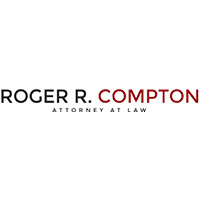Clinton Bankruptcy & Debt Lawyer, North Carolina
Sponsored Law Firm
-
 x
x

Click For More Info:
-
Oliver & Cheek, PLLC
405 Middle Street New Bern, NC 28560» view mapBankruptcy & Debt Law Your Business Partner
Oliver & Cheek, PLLC is a full service business firm providing a wide range of legal services to clients in North Carolina.
252-633-1930
Roger R. Compton
✓ VERIFIEDBankruptcy & Debt, Family Law, Divorce, Traffic
At the North Carolina law firm of Roger R. Compton, Attorney At Law, our attorneys provide experienced and dedicated representation. From initial cons... (more)
Gregory T. Griffin
Motor Vehicle, Wills & Probate, Divorce & Family Law, Bankruptcy & Debt, Personal Injury
Status: In Good Standing Licensed: 45 Years
Andrew John Dickerhoff
Civil & Human Rights, Estate, Collection, Trusts, Criminal
Status: In Good Standing Licensed: 7 Years
C. D. Maxwell
Estate, Civil & Human Rights, Bankruptcy & Debt, Accident & Injury
Status: In Good Standing Licensed: 54 Years
Melissa Ann Atkinson
Motor Vehicle, Child Custody, Business, Collection
Status: In Good Standing Licensed: 13 Years
Kathryn Johnston Tart
Divorce, Divorce & Family Law, Civil & Human Rights, Contract, Bankruptcy
Status: In Good Standing Licensed: 20 Years
Robert E. Fuller
Commercial Real Estate, Social Security, Bankruptcy & Debt
Status: In Good Standing Licensed: 50 Years
Randy S. Gregory
Government, Criminal, Bankruptcy, Accident & Injury
Status: In Good Standing Licensed: 51 Years
 George Oliver New Bern, NC
George Oliver New Bern, NC AboutOliver & Cheek, PLLC
AboutOliver & Cheek, PLLC Practice AreasExpertise
Practice AreasExpertise

